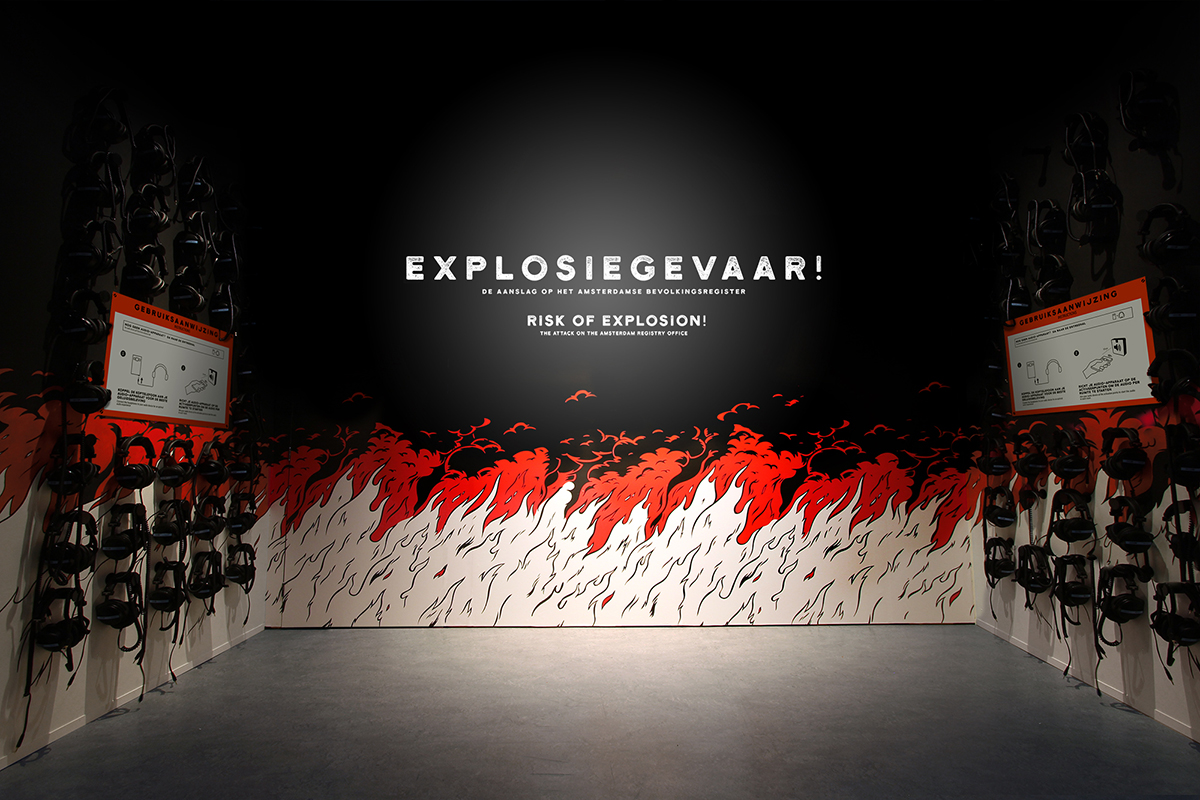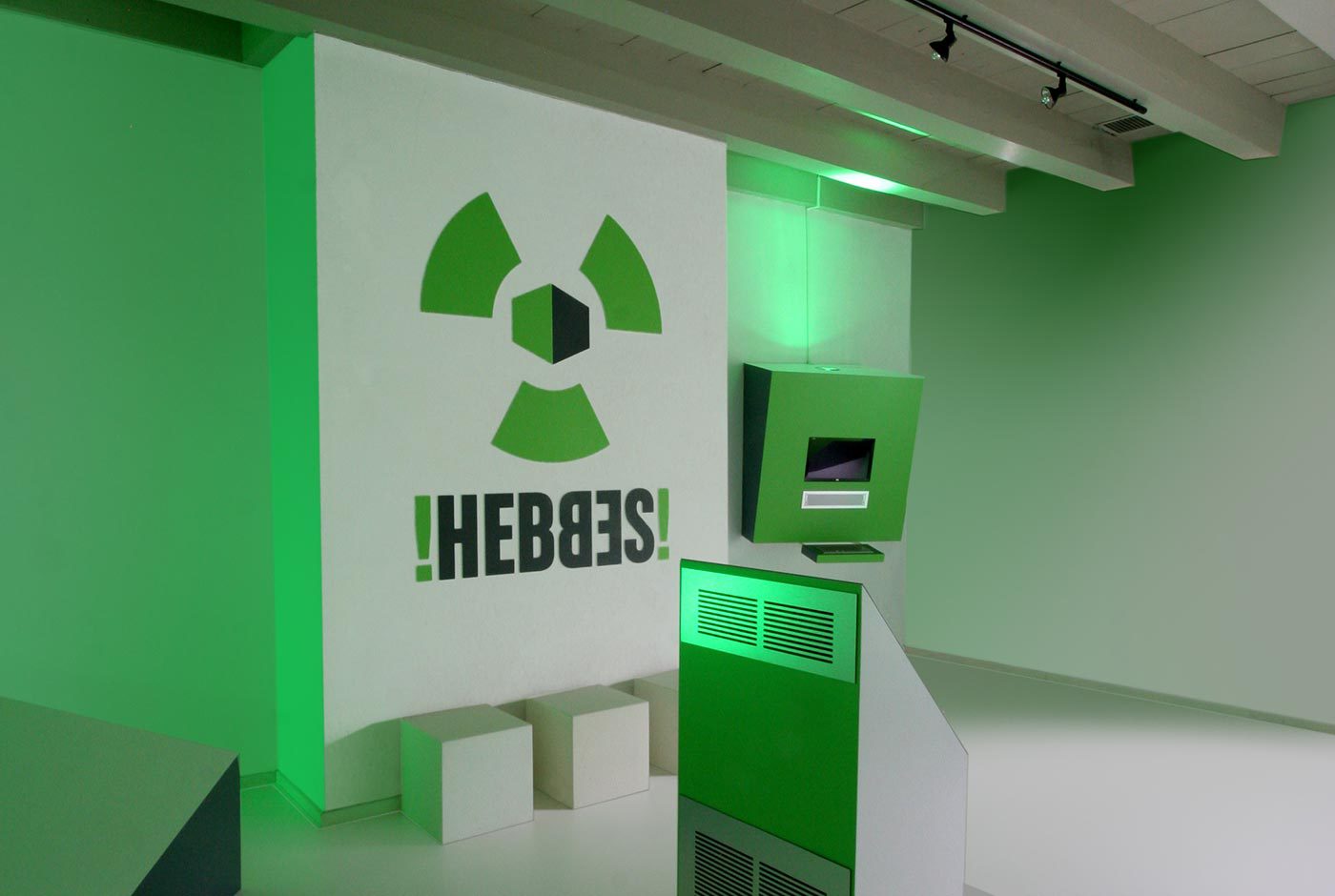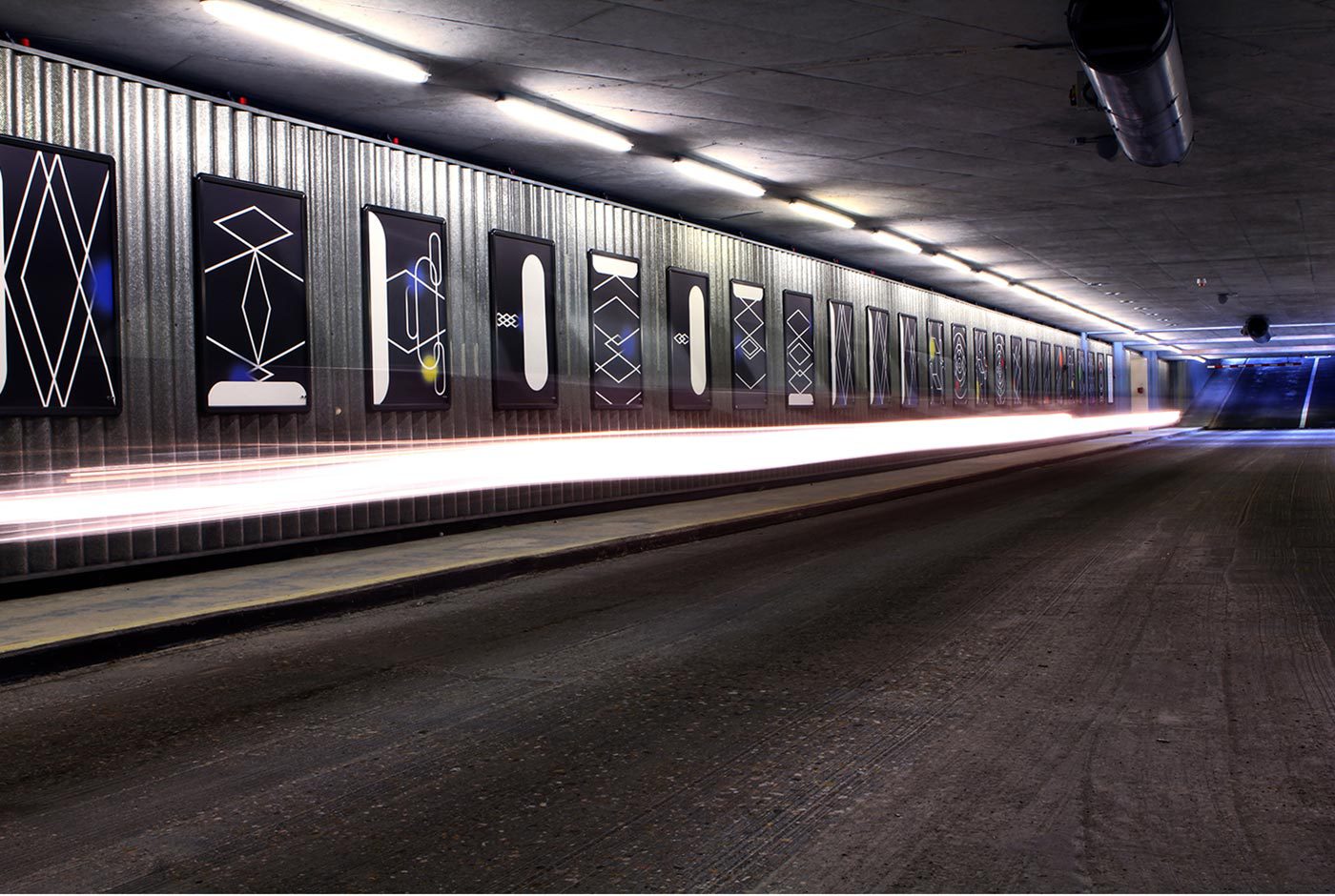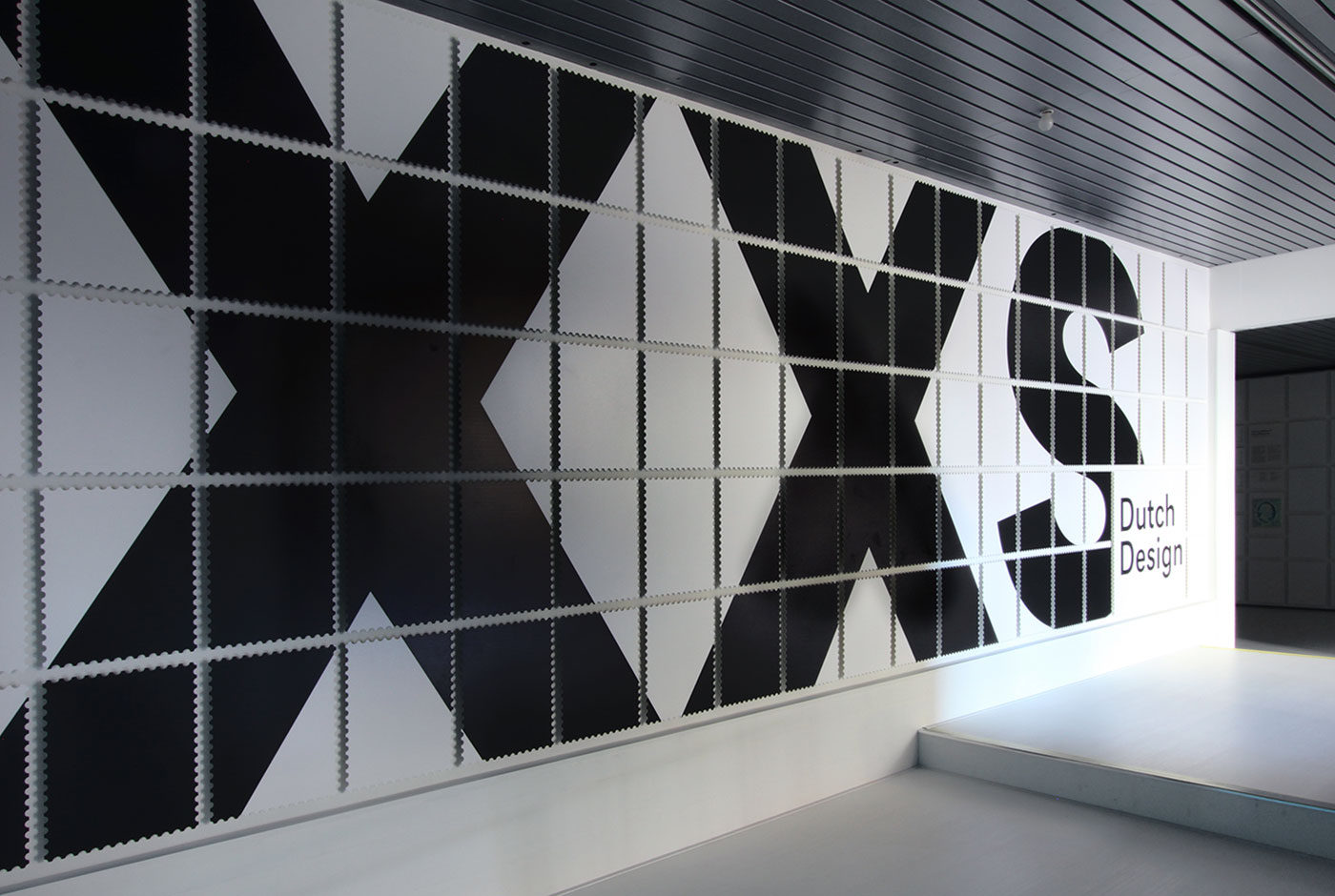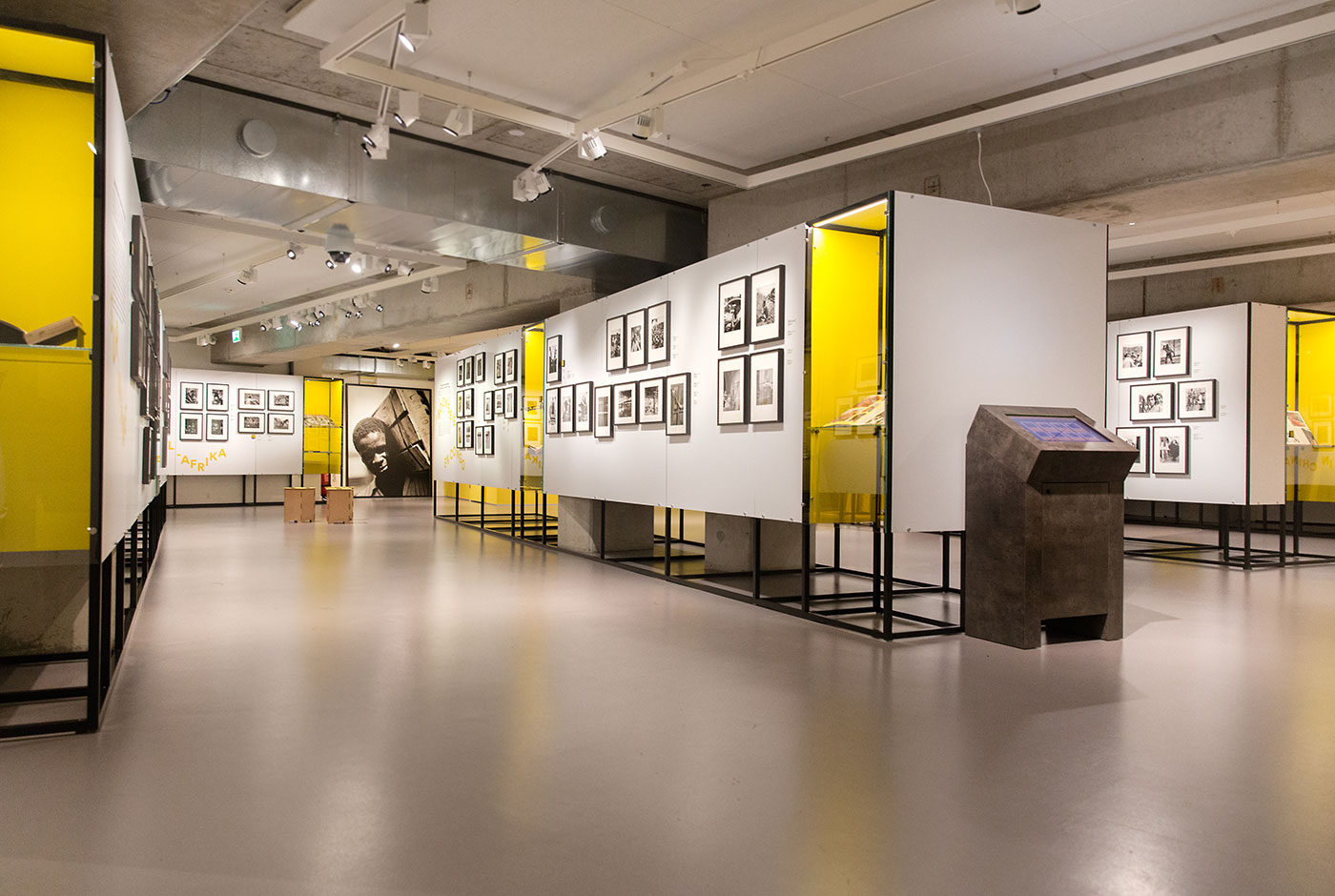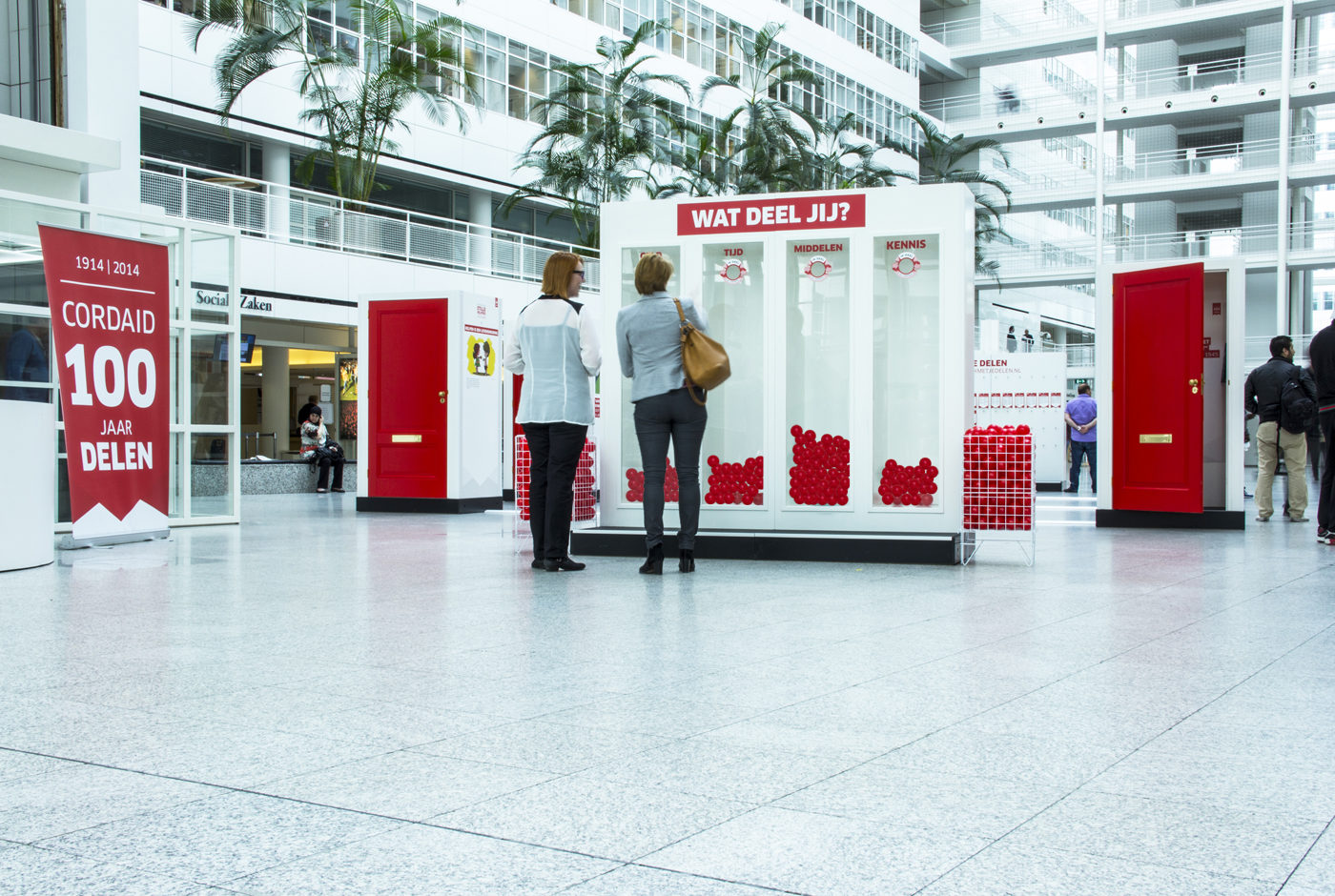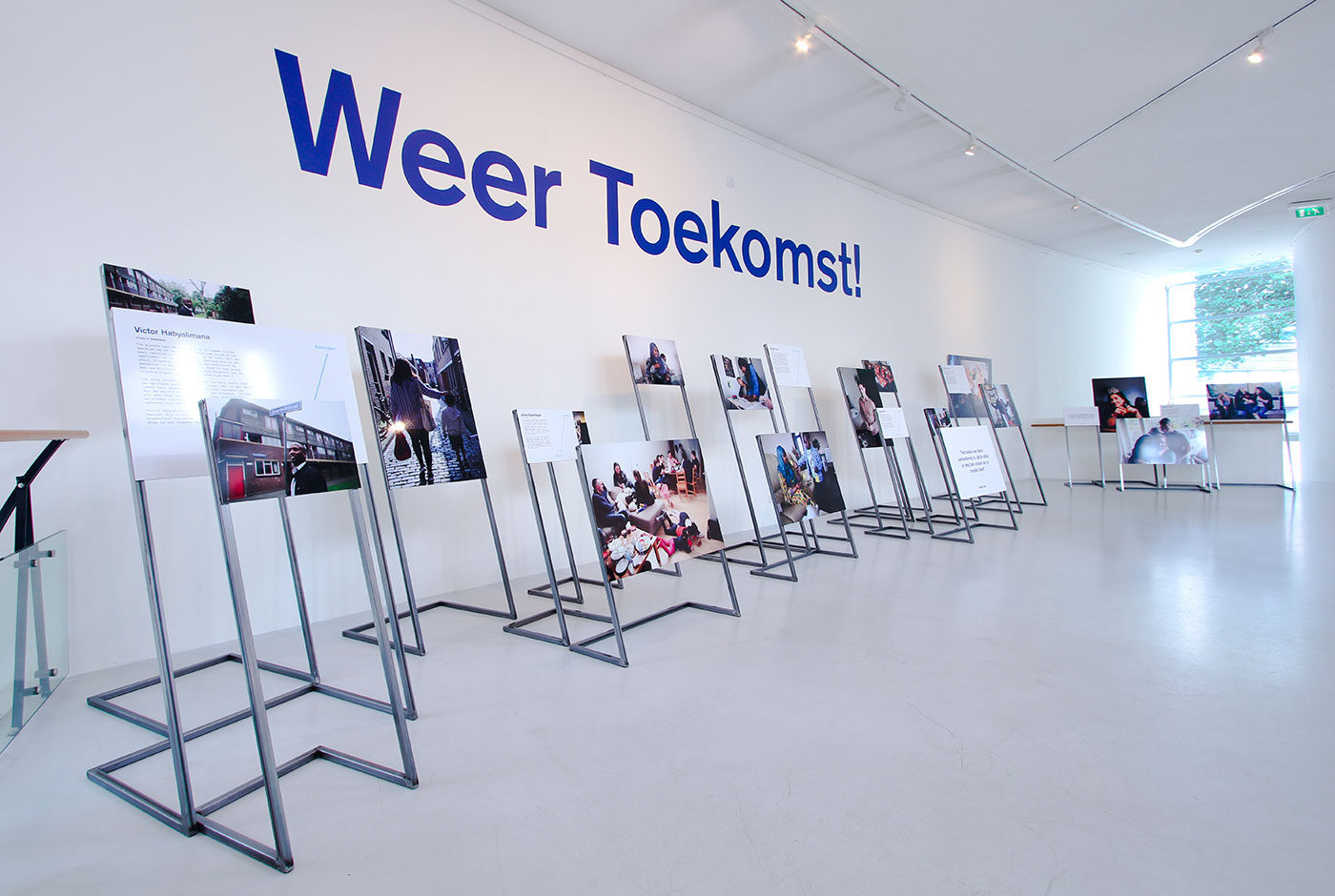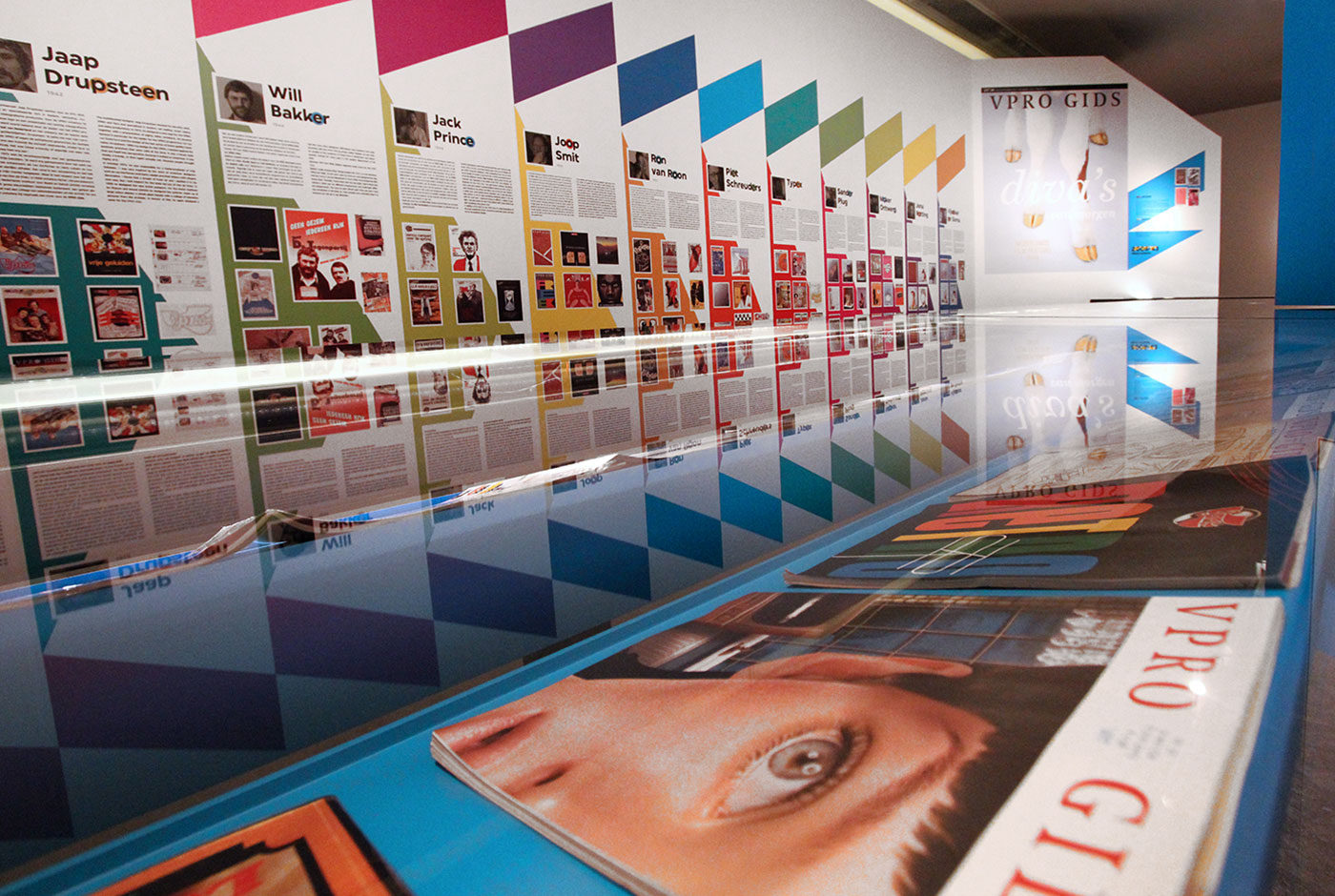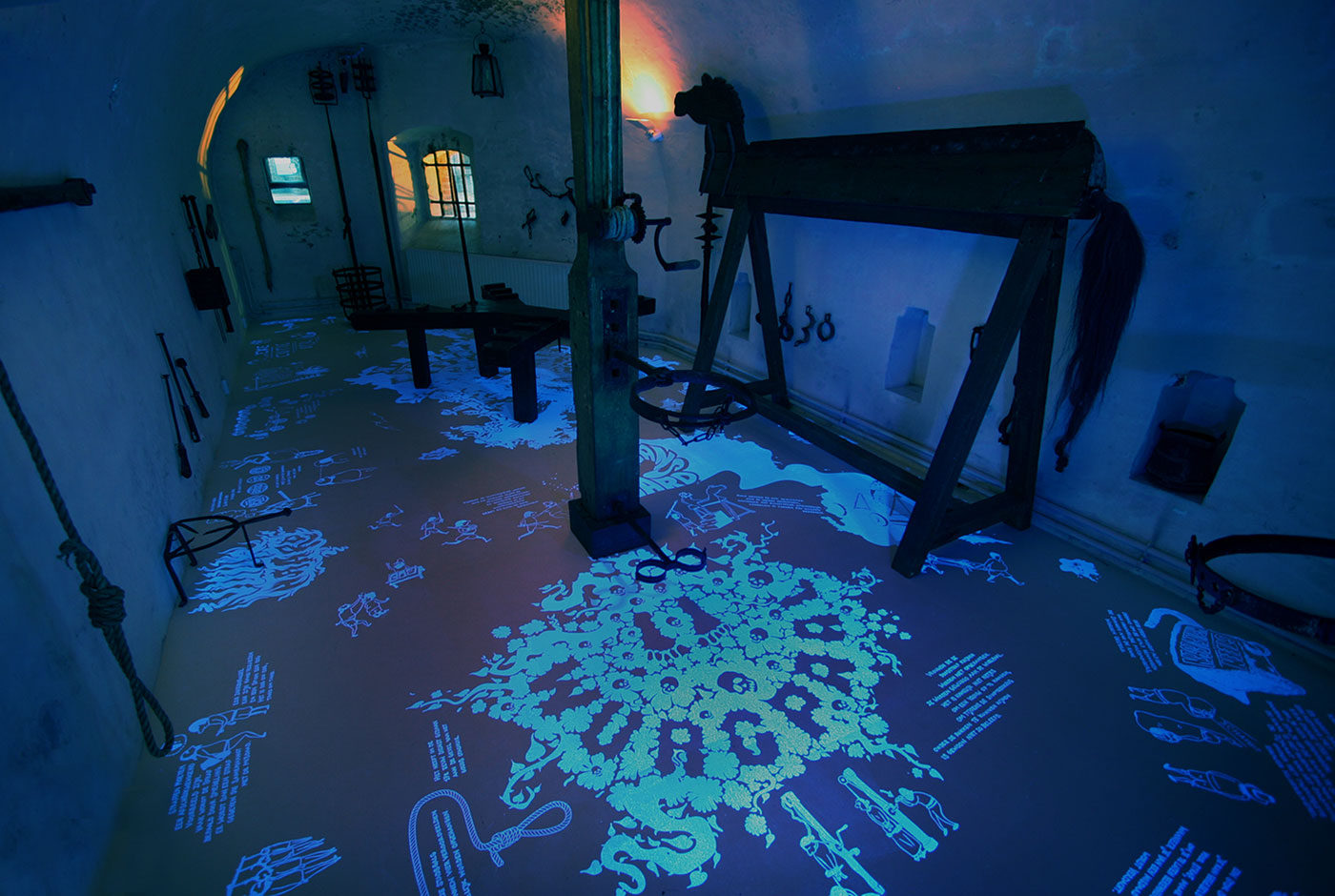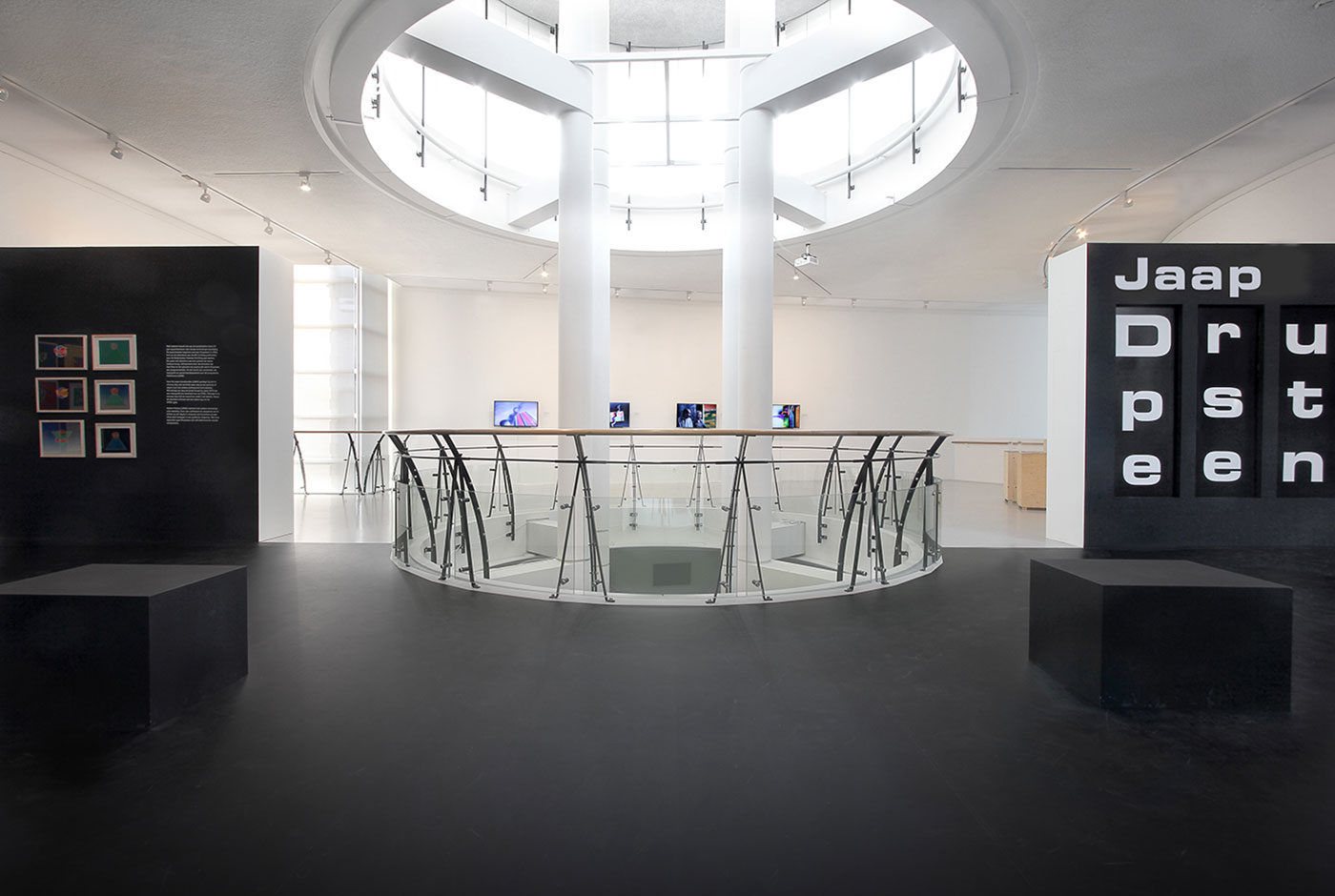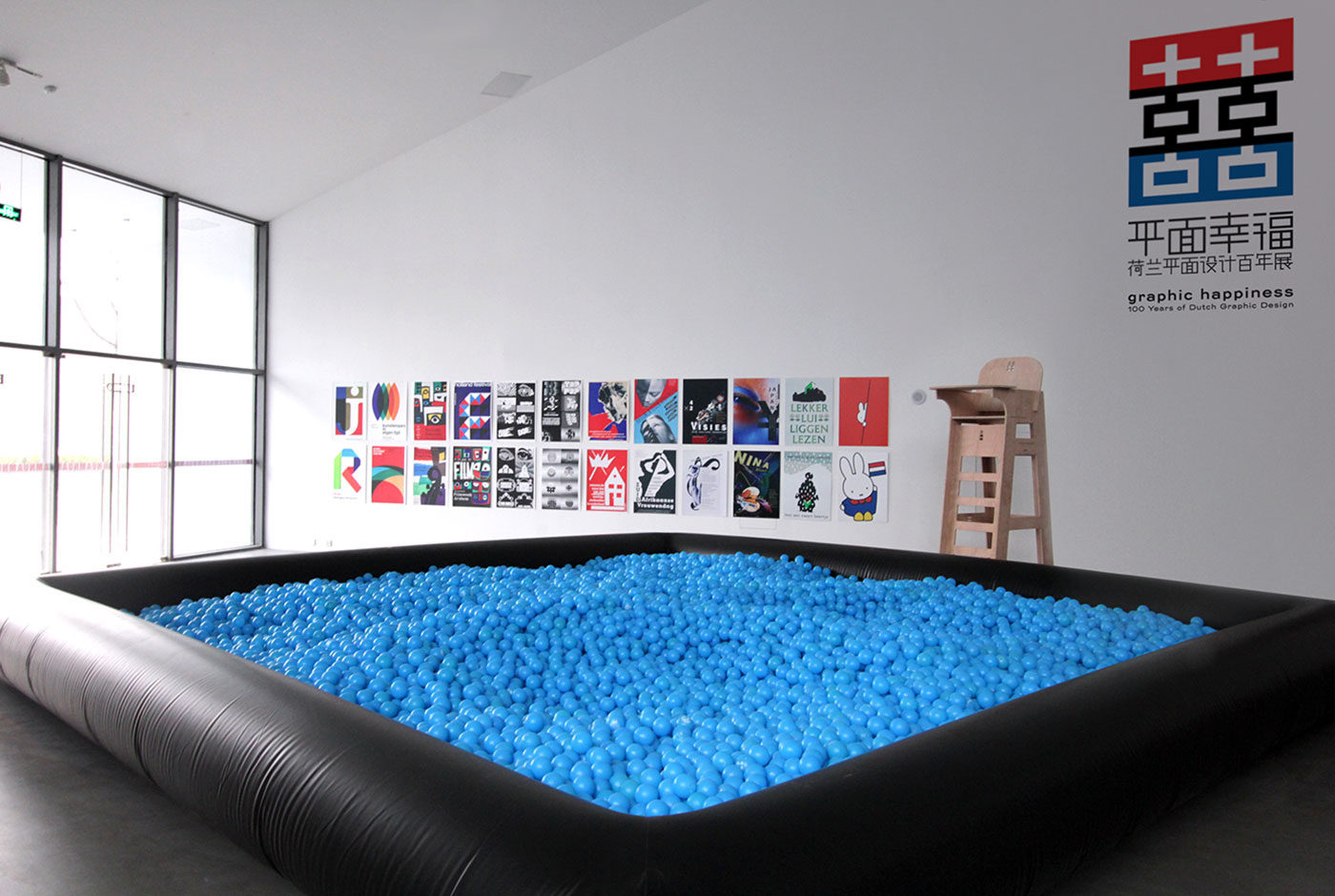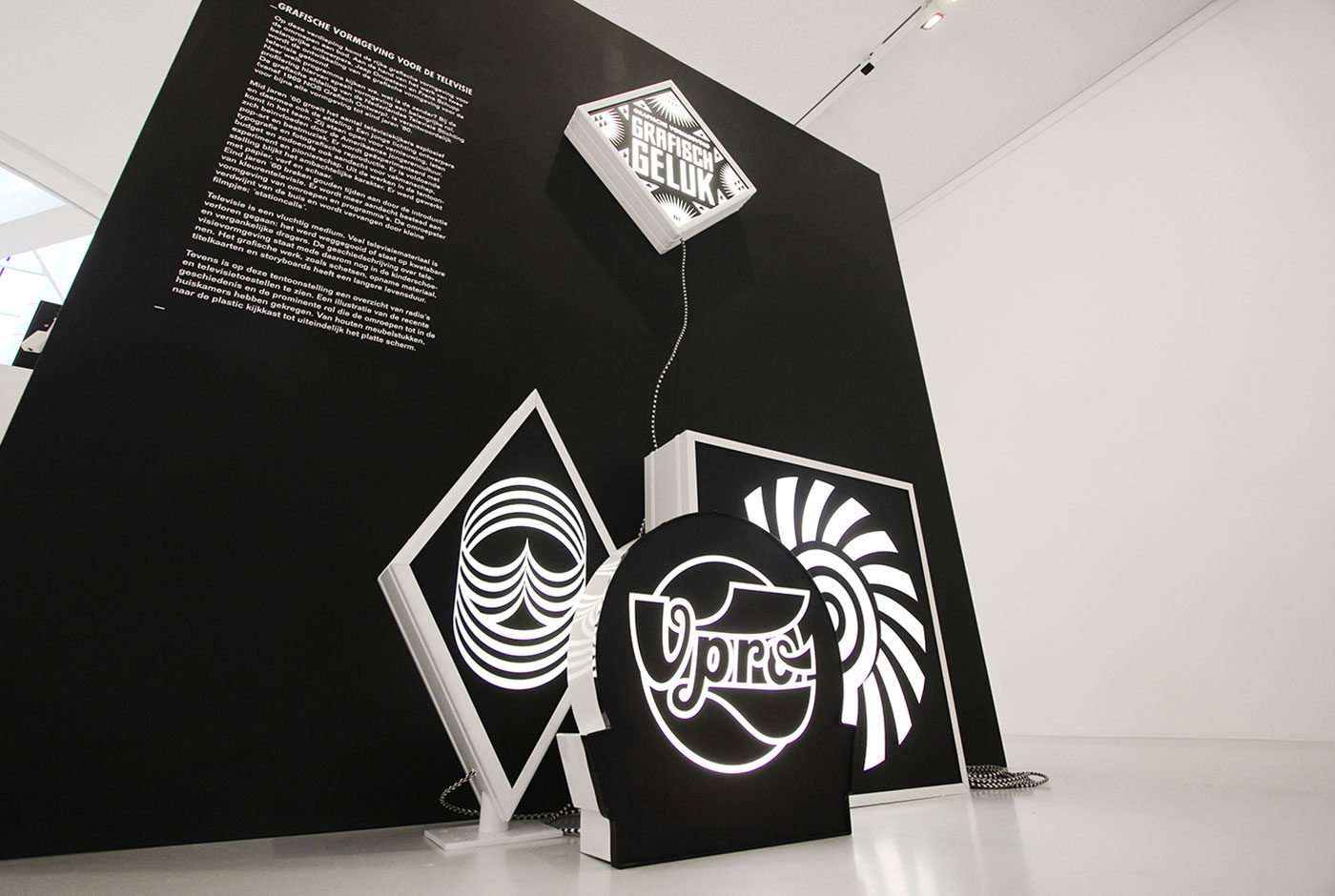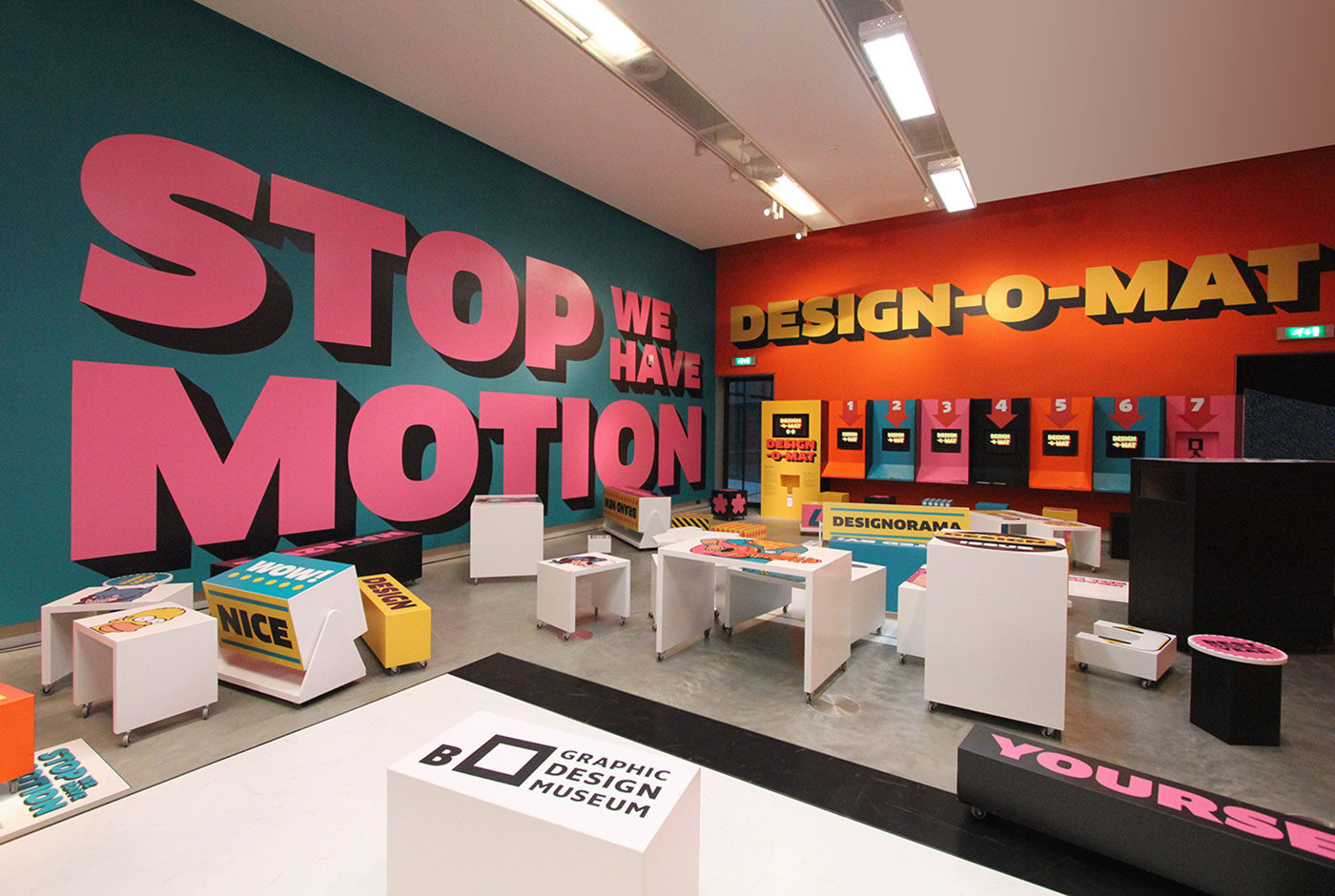To celebrate fifty-years as a practicing designer, Museum Hilversum held a retrospective exhibition on the work of Jaap Drupsteen. The exhibition showcases Jaap Drupsteen fruitful career and divides this into three sections.
The top floor presents his early audiovisual design (VPRO, Hadimassa etc) and printed objects (money, passport etc). Being a designer for screen, Drupsteen naturally starts working on black, hence the visitor enters a completely black space displaying only video work. After this the visitors moves to white – print work. Also on show are the original title rolls, all made by hand, inspiring a scrolling intro wall.
Since the exhibition features a large amount of video work a special audio system, the Sennheiser guidePORT, is used. With the headphones on the user walks towards a screen or into a particular area and the audio is automatically heard. This prevents multiple audio tracks clashing and turning the exhibition space into musical chaos.
The Music Theatre is the second floor and displays many of Drupsteen’s theatre productions he created specifically for television. To create these unusual and inventive productions he became revolutionary in his use of chroma keying – the blue/green screen effect. To demonstrate this the visitor can experience live chroma keying by standing in a blue screen area and magically being positioned into one of Drupsteen’s works.
The lower floor presents his most recent work through two large scale projections. These are audiovisual compositions created for DJ and orchestral visuals and use a software developed by Drupsteen himself to achieve a perfect sync between image and sound.






